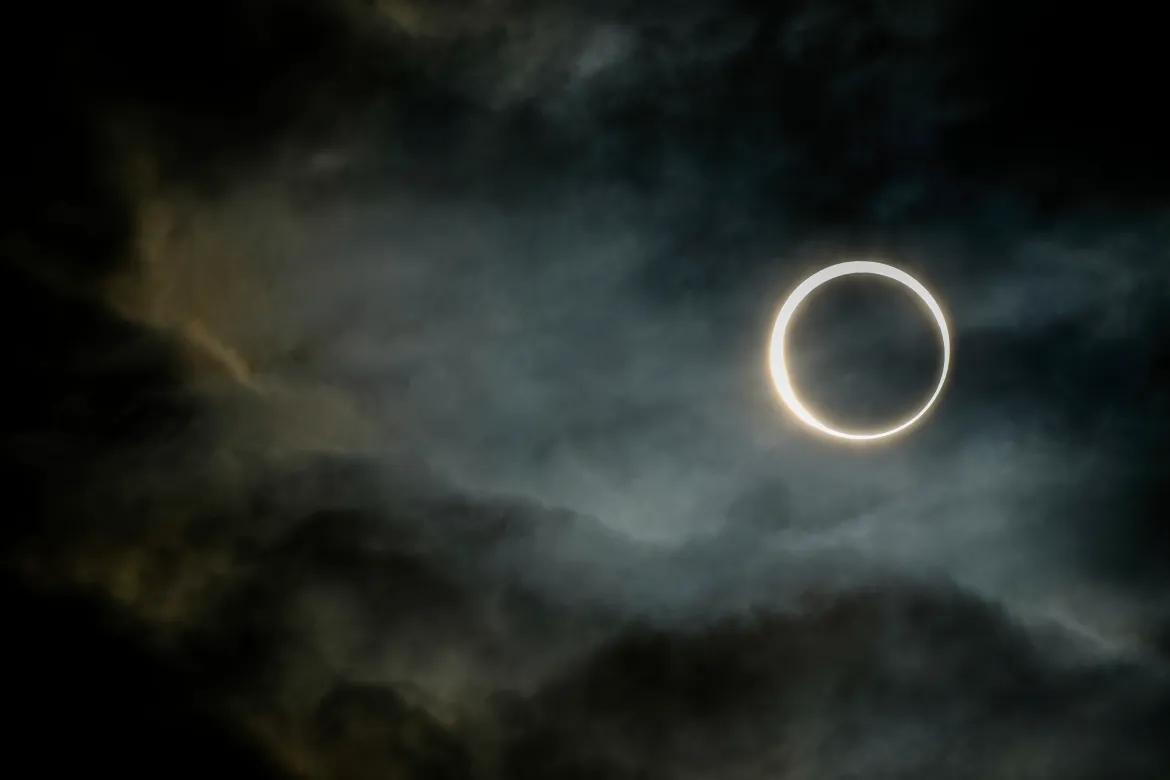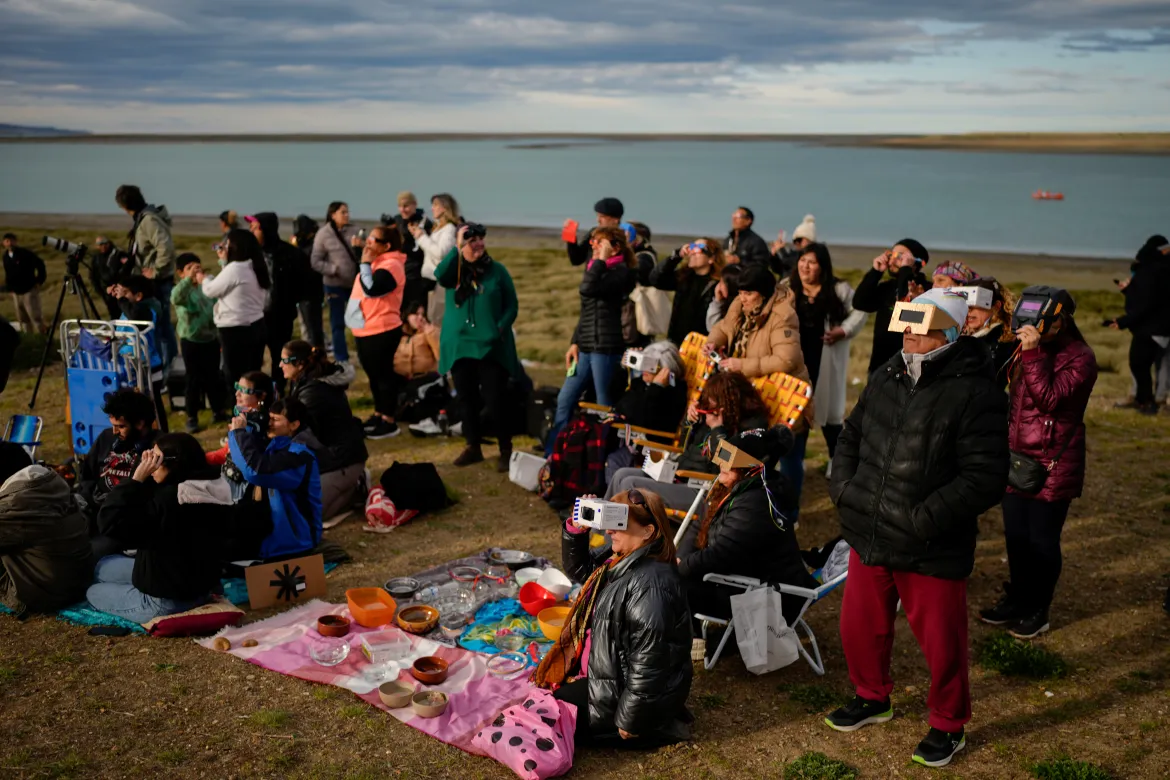Stargazers in Chile and Argentina turned their eyes to the horizon on Wednesday to see the last solar eclipse of 2024, a “ring of fire” that blazed across the sky.
This celestial phenomenon, also known as an annular eclipse, occurs when the moon passes in front of the sun, darkening the centre of the sphere.

Solar eclipses are not uncommon, NASA, the US space agency, estimates that two to four eclipses occur each year, but they are not visible from all points on the globe.
Only those in the “total eclipse path” were able to observe a total eclipse, when the moon covers the sun, leaving only a ring of light. Experts say this year’s path of total eclipse was between 265 and 331 kilometres (165 to 206 miles) wide.
However, those outside the path of totality were able to enjoy a partial eclipse, in which the sun appeared in the shape of a crescent moon or as if a piece of it had been bitten off.

Areas of Chile and Argentina were directly in the path of the total eclipse. A partial eclipse was visible in Antarctica, Hawaii, Mexico, New Zealand and other parts of South America, including Brazil and Uruguay.
Although the “ring of fire” was the last solar eclipse of 2024, next year will bring two partial eclipses. The first one, on March 29, will be visible across Europe, Asia, Africa, North and South America. The second one, on 21 September, will be visible in Australia and Antarctica. But the total solar eclipse stargazers will have to wait, because the next “ring of fire” will come on February 17, 2026.
Cautions for stargazers
During a solar eclipse, one should not look directly at the Sun without special protection, because this can damage one’s eyesight. Traditional sunglasses, X-rays or photographic plates will not do. Astronomer Gonzalo Tancredi told El País during a previous similar event:
There are solar filters that filter out more than 99% of the sun’s radiation, but they are not sold in Uruguay. Welding masks will be useful, but only if the glass of the welding mask meets the DIN14 standard and must be in good condition, without scratches.
The recommendation is to make a projection of the solar disc, that is, not to observe it directly. Tancredi also explained:
The easiest way is to take a piece of paper and make a small hole in it. Pass light through this hole and project it on the floor or on another screen or flat surface. Then you can see the solar disc clearly and trace how the Moon is gradually eating into the solar disc.
